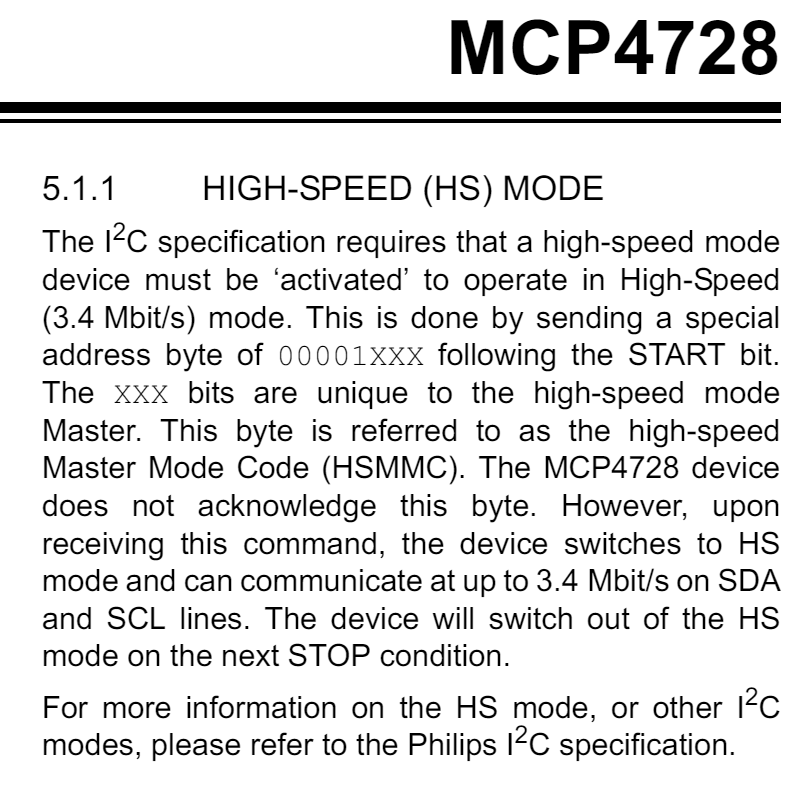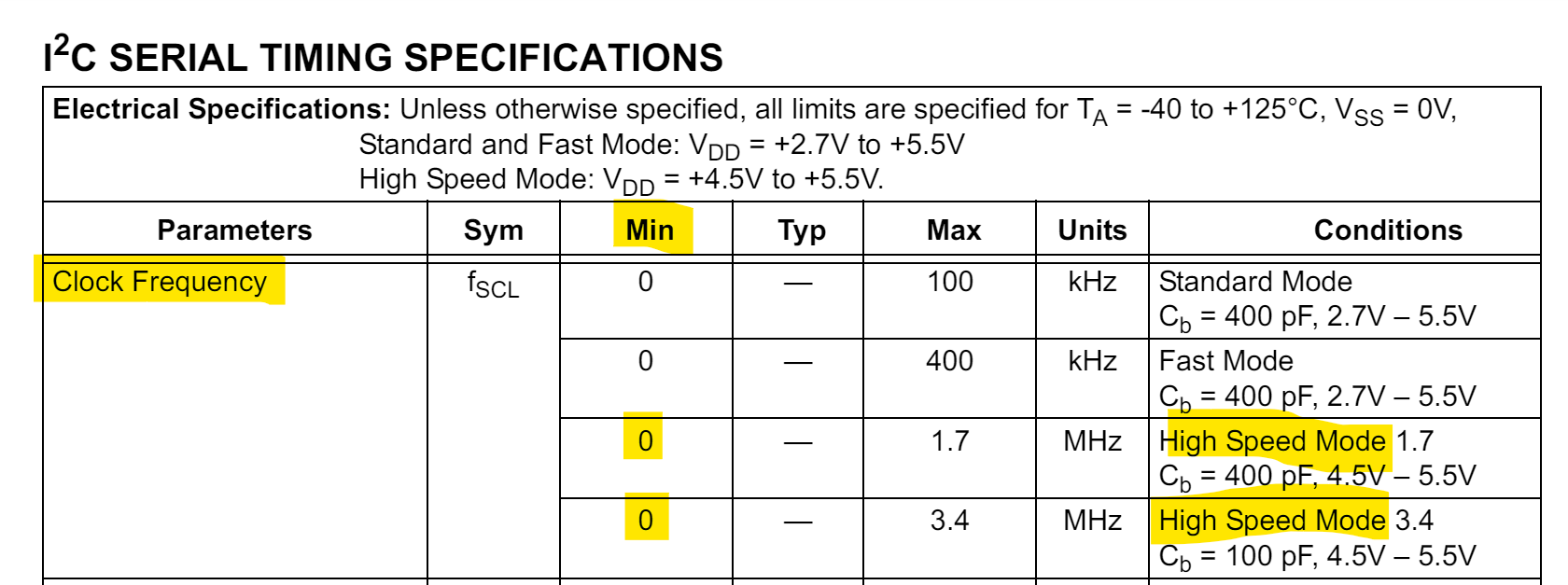I keep finding many I2C devices that specify Normal (100 KHz), Fast Mode (400 KHz) and High Speed (3.4 MHz) operation, but make no mention of Fast Mode Plus (1 MHz).
Would you expect these to support it nonetheless?
Here's one example: MCP4728 although I'm mostly looking for an answer that's not device-specific.
Things I'm wondering:
Is the same circuitry typically used for all I2C modes (and therefore intrinsically capable of MHz range operation), or is there usually a separate HS circuit on the device that kicks in when the host sends the HS command?
Do some manufacturers just not recognise Fast Mode Plus as a standard?


